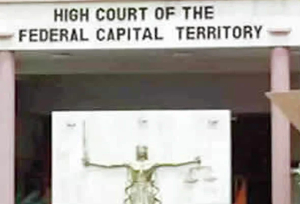Barely one month after a Ghanaian government official came to Nigeria to explain issues relating to the seemingly strange policy of the Ghana Investment Promotion Council (GIPC) which placed a compulsory tax essentially on Nigerian businessmen and women in Ghana, latest investment laws have compounded the woes of foreign citizens from the Economic Community of West African States (ECOWAS).
Henceforth, ECOWAS citizens in Ghana are regarded as expatriates. This is coming on the heels of the latest investment law signed into law by President John Attah Mills as part of his drive to return the destiny of his citizens to their own hands.
This was made known by the Ghana Investment Promotion Council (GIPC). The GIPC has reviewed all the country’s rules and regulations concerning foreign investment laws, which classified ECOWAS citizens desirous of working in their country as expatriates.
Under the new move, GIPC is seeking to review foreign investment laws in the country ranging from $300,000 to $1million as minimum capital requirement as precondition for any foreign investor to do business in Ghana.
Diplomatic analysts say what this means is that Nigerians and other ECOWAS citizens who go to work and do business in Ghana will either continue to travel to and fro or leave.
Additional provisions of the new tax regime stipulates further that interested expatriates will also come under quota restrictions and will have to renew their status at the expiration of their permits.
But observers argue that the development may trigger a dangerous dimension of diplomatic row within the sub-region as Ghana remains a signatory to the prevailing ECOWAS protocol which allows free entry and exit for West African citizens.
Already, member countries like Nigeria, Togo and the Republic of Benin have frowned at the move, saying that the latest pronouncement will shut their nationals out of business.
When contacted on the issue, ECOWAS executive secretary, Ibn Chambas, decried the anti-ECOWAS protocol regime in Ghana. He enjoined the authorities to consider a review of the sub-regional investment promotion council, saying that is it anti-ECOWAS that will not be to the interest of member countries.
But the GIPC looks unruffled as it is still committed to going ahead with the plans expected to shut other West African countries out of the market and to a larger extent draw back the growing sub-Saharan economy.
Daily Champion recalls that on November 28, 2007, Nigerian traders in Ghana found themselves at crossroads over a business policy targeted at their businesses in Ghana. GIPC came up with a policy that every Nigerian business outfit in Ghana must pay a record $300,000 before being allowed to do business.
Prevailing rate then was put at N48 million, the GIPC went into action, sealing up thousands of Nigerian businesses in Accra, the country’s capital and other Ghanaian cities.
More than 20 months afterwards, the businesses and shops have remained shut. Some of the traders had expected that the new Ghanaian government of John Atta-Mills would discard the policy and allow them access to their means of livelihood but the present administration has jerked up the resident tax to a million Dollars.
Even though the1994 Ghana Investment Promotion Act guarantees the freedom for non-Ghanaians so as to attract private foreign investment to the country, the latest twist in the nation’s foreign trade policy experts say, may not be unconnected to rising volume of businesses owned by foreigners and especially Nigerians.
Statistics show that ECOWAS citizens especially Nigerians have in the last few years taken total control of strategic businesses which have contributed in shaping the economic landscape of the first African nation visited by the current US president.
General News of Thursday, 15 October 2009
Source: The Ghanaian Journal












